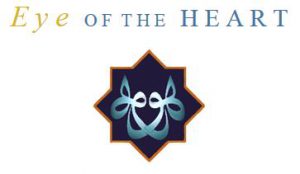
THRESHOLD SOCIETY NEWSLETTER ~ JUL 2020
***
July Theme
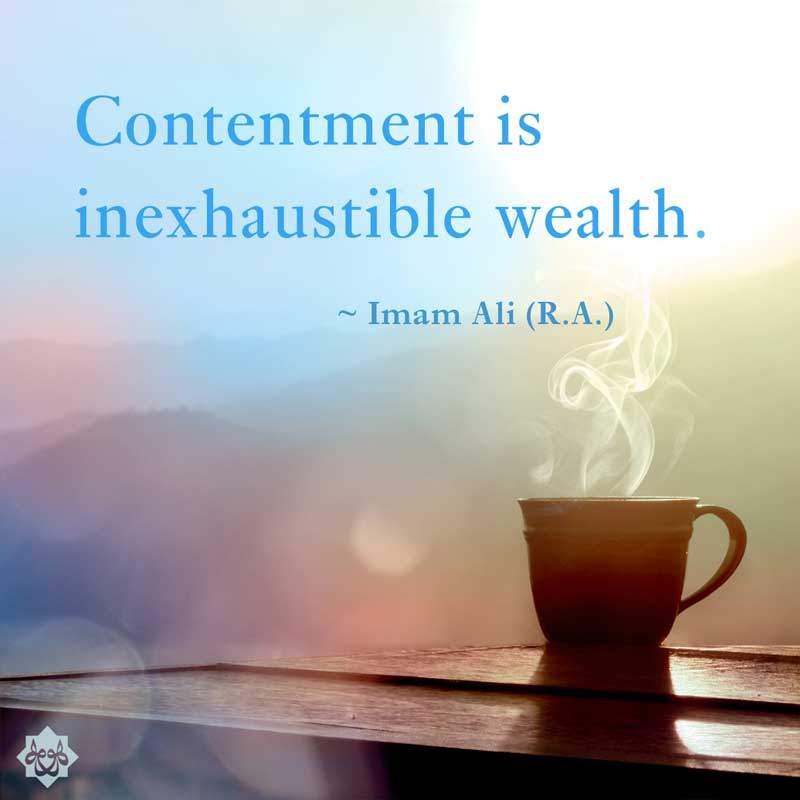
Contentment is inexhaustible wealth. ~Imam Ali (r.a.)
We welcome your reflections on this theme.
***
Reflection on June’s theme: Beyond desiring attention, become attention. ~ Shaikh Kabir Helminski
~ Anne Gray [London, UK]
 Desiring attention is a trap on the spiritual path; we are warned in the adab for dervishes not to seek it. So what are my motives for writing this? Ambition, or to contribute something to the community? This one concludes that what is helpful to others are the issues that many may share, and potential solutions which she has found in Sufi teachings.
Desiring attention is a trap on the spiritual path; we are warned in the adab for dervishes not to seek it. So what are my motives for writing this? Ambition, or to contribute something to the community? This one concludes that what is helpful to others are the issues that many may share, and potential solutions which she has found in Sufi teachings.
Amongst the things which have led me to desire attention from others, I can identify three influences which may be common: a distorted response to parental ambition, school bullying, and the ‘desperately seeking partner’ issue.
My school-teacher parents were very ambitious for their children. The role model was my big brother, already the first in the family to attend university by the time I was nine. Family relationships often felt like having three teachers, all offering carrots and sticks related to my educational performance which took precedence over friends or fun. This led to craving praise, wanting to always be the best, be intellectually superior, be acclaimed as someone special. My subsequent academic career rather reinforced that.
At school I was the ‘teacher’s pet’, attracting jealousy from classmates, and the teased fat girl, so much into books that she got little exercise and was terrible at sport. I craved popularity, but never found it. What friendships I had were sometimes discouraged by my parents (with the best intentions, bless them) for leading me towards too much TV or rock and roll, in their view un-intellectual trivia. More books, more knowledge, seemed the only compensation for lack of peer validation…but perhaps became a vicious circle.
Later came the problem of desiring sexual attention. The isolated teenager may often lack the social skills needed to find the right partner – perhaps why my first marriage lasted only a decade. The following years of desperately seeking Mr. Right became an obsession, distracting from many other things – especially from finding supportive relationships with women. I did eventually find him – only after I had almost given up trying, which may have made me easier to relate to.
The spiritual path has helped me confront my childhood legacy. Humility, a central Mevlevi virtue, is an antidote to the craving for praise and achievement. The concept of tawhid, now a central part of my world-view, helps to see oneself as part of the Divine jigsaw puzzle, accepting whatever tasks appear with whatever capacities one has, in mutual complementarity with others, without seeking reward or praise. In this perspective, competition or showing off is an aberration (except in the sense of vie with one another in patience; Qur’an 3:200). As Mevlana Rumi reminds us ‘we live in borrowed clothes’[1] – the personal attributes we think of as our ‘identity’ are not ours but from Allah, ‘borrowed’ for our limited lifetimes. Our attempts to better ourselves and the world are dependent on Allah; as the Qur’an states of one victory of the Prophet’s army, it was not you that threw [stones], but He threw (Qur’an 8:17).
But how to become attention? Who and what is the ‘I’ that should be giving attention?
Mevlana continually reminds us that our sense of individual identity is illusory, derived from the instinct for survival and self-protection. But there has to be an active ‘I’ that sustains attention. That ‘I’ is ‘centred in Spirit’[2], ‘a transformed identity which is in touch with Reality’[3] and linked to ‘the creative potential of Universal Intelligence’[4]. This resonates with Vedantic tradition, though with important differences. Before coming to Sufism, I found inspiration in Patanjali:
The mind is able to perceive because it reflects both the Atman and the object of perception’. The editors comment, ‘The mind’s power to perceive is only borrowed from the Atman.[5]
Seyyed Hossein Nasr traces an unfolding thread from Vedanta to Sufism:
Hinduism addresses itself to that element in man which is already divine and which man can come to realise only by knowing him-Self. The Sacred lies at the heart of man and is attainable most directly through knowledge which pierces the veils of maya…[6]
Thus aql, or sacred intelligence, is higher than mere book-learning, which Mevlana and Shams both warn against as a trap. It is reason combined with the knowledge of the heart. It is what I think of from meditation experience as ‘refined intelligence’ which concentrates the mind down a central axis through the breath and the nose, feeding on Spirit and detached from the concerns of the ego. Words begin to fail me; the potential impact is better expressed by Cemalnur Sargut:
With the assistance and guidance of the intellect, the nafs starts to destroy the head of excessive desires. In this [struggle] its greatest supporter is love. For the one who knows his nafs or his nothingness, his ruh enters the station of Rabb…. the teacher. The person who attains servitude is able to say, ‘I am incapable and powerless, I know nothing; everyone has higher qualities than me.’ This person becomes subservient to his spirit and its teaching and begins to be trained by it.[7]
As an antidote to craving popularity and attention from one’s peers, the Sufi path provides a grounding in the secure love of the Divine. The trivia of much secular conversation and frequent petty disputes between co-workers or political associates are forgotten in the sacred circle. Our quest for tawhid loosens the boundaries of our individual identities and with them our attachments to praise and recognition.
May our relationships with others and the world around us be grounded in tawhid, in ‘an I-ness rooted in the heart, an “I-ness without I”’[8]. May the Divine help this one to forget her conceits and rise to this challenge, inshallah.
~ Anne Gray has been with Threshold since 2007. She is gradually retiring after a career of academic research and consultancy in social policy, and is currently writing a book about social care of older people.
[1] ‘One Song’, tr. Coleman Barks, on https://uri.org/uri-story/20190129-inspiration-wihw-one-song-poem; also a similar passage in Mathnawi V, 981–84
[2] Living Presence, 2017 edition, p.62
[3] ibid. p.68
[4] ibid p. 120
[5] ‘How to know God; the Yoga aphorisms of Patanjali’, translated with commentary by Swami Prahavananda and Christopher Isherwood, 1953.
[6] Knowledge and the Sacred, p. 6
[7] Beauty and Light, pp.98–99
[8] Living Presence, p. 57
***
Reflection on June’s theme: Beyond desiring attention, become attention. ~ Shaikh Kabir Helminski
~ Jeremy Henzell-Thomas [Glastonbury, UK]
 Walking through Bath a few days before Christmas several years ago, I could not fail to notice a large poster in the window of a hairdressing salon in the heart of this much admired spa town in the West of England.
Walking through Bath a few days before Christmas several years ago, I could not fail to notice a large poster in the window of a hairdressing salon in the heart of this much admired spa town in the West of England.
In the centre of the poster was a glitzy handbag surrounded by various vanity products with the caption ghd Christmas Giftbox. Above, in bold letters, was a blatant and insolent parody of the language of Christian supplication: Grant me the Power to be the Centre of Attention this Christmas, with the added blasphemy of a direct citation of words from the Lord’s Prayer, the Christian equivalent of the Muslim Fatiha: Thy Will be Done. And at the foot of the poster, these words: A New Religion, ghd Hair.
Even Beau Nash, the celebrated dandy, who had played a leading role in making Bath the most fashionable resort in England in the eighteenth century, might have squirmed had he seen this, if only for its appalling taste.
I’m reminded of these words of Mevlana Rumi:
When you seek the signs of the Way,
Don’t make yourself the centre of attention…
Fix your eyes on the stars and seek the Way.[Mathnawi VI, 1594 –96]
At the time I seriously considered marching into the salon to complain forbiddingly about the outrageous misappropriation of religious language to appeal to egoism and narcissism as a means of driving up seasonal sales in a culture mesmerised by consumerism. But I stopped myself. Would I not simply be labelled as a religious nut, a miserable killjoy, the kind of anachronistic doom merchant who stands on street corners hectoring embarrassed passers-by with Biblical warnings: Vanity, Vanity, saith the preacher, All is Vanity.
Now you’ll be relieved to hear that, despite my name, my purpose here is not to indulge in a ‘jeremiad’, that long, mournful lamentation warning of moral decay and prophesying the imminent downfall of society, even though I admit to having been impressed so many years ago by Christopher Lasch’s best-selling 1979 book The Culture of Narcissism. At the time, Lasch was described by Time magazine as ‘biblical prophet’, and the wider public embraced his jeremiad. He described as a pathology the ‘grandiose self-conception’ infecting modern life, and it may well be that egomania is even more pervasive today than it was then. The culture of self-aggrandisement and self-entitlement (‘You’re worth it!’ as the L’Oréal
slogan goes) is rife, symbolised perhaps most vividly in the proliferation of selfies that fabricate false images of people desperate for approbation and attention. In the current pandemic, museums and art galleries have had to set up virtual tours online, and although one might assume that these are poor substitutes for actual visits, one positive outcome is that we can now linger over many famous exhibits that were often very difficult to see because visitors insisted on queuing up to stand in front of them while taking selfies, with the attention less on the exhibit and more on themselves.
But let’s move on from attention-seeking to the hugely important faculty of attention. Kabir Dede opens the chapter on Voluntary Attention in his masterful book Living Presence with these words of essential guidance:
Why study attention? What is the faculty of attention? It could almost be said that a human being is attention. Whatever occupies our attention – whether inwardly or outwardly, whether profound or trivial – is what we are at that moment.
He adds that ‘the study of attention is also the study of the ego and the essential Self. One of the qualities of the ego is that it has little attention of its own; instead, its attention is captured and compelled by what it likes and dislikes. The awakened Self, on the other hand, can direct and sustain attention… More and more we learn to keep out attention on Being itself’ and ‘this can be done only if our attention is not easily coerced and distracted.’
The need to direct and sustain our attention is even more pressing in these times which have seen a rapid deterioration in attention span and in which the immediacy of soundbites and simple stories are more and more compelling. At the Threshold Society retreat on ‘Returning to the Source of Love’ at Gaunt’s House in 2015, I referred to some research which revealed that the average human attention span had dropped from 12 seconds in 2002 to only eight seconds in 2013, which is one second shorter than the notoriously ill-focused goldfish. Another investigation has shown that while many people believe that they are multi-tasking for a lot of the time in our increasingly complex and pressurised world, in fact little real multi-tasking is going on, only the illusion of it. What is actually going on is just flitting from one trivial distraction to another, usually on media devices, skating on the surface of one pond after another, with little sustained attention to anything. The limitless stream of prompts and notifications from the internet creates a constantly divided attention, and this, in turn, decreases our capacity for maintaining concentration on a single task. Other global research based on scores of studies and experiments assessing the impact of our increasingly digitalized lifestyle on our brains over the last three decades has discovered that smartphones are also replacing our ability to remember facts accurately while tricking us into thinking we are smarter than we actually are.
Of course, for the seeker, attention serves higher aims than the accurate retention of information, although we should not discount the importance of adhering to the truth at all levels. As Kabir Dede says, it is through the training of the attention, which is a fundamental part of our spiritual training, that we begin to acquire the presence that is the enabling factor of all spiritual work. Eventually, it may become ‘luminous and creative’ and ‘directs the power of the soul’. In consciously giving our attention to others in service, ‘we are also giving of our soul, and that is how the soul grows.’ For much further guidance and wisdom on the nature of attention and its training, I can do no better than direct you to the two chapters on attention in Living Presence: ‘Voluntary Attention’ and ‘Meditation: The Refinement of Attention’.
~Jeremy Henzell-Thomas is an independent researcher, writer, speaker, educational consultant, and Visiting Fellow at the Centre of Islamic Studies at the University of Cambridge.
***
Sunday Meditation
1st & 3rd Sunday of the month
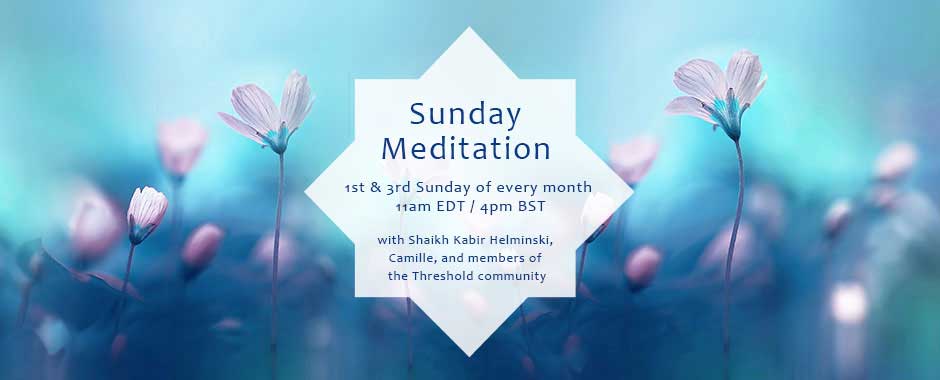 An online meditation with Shaikh Kabir Helminski, Camille, and other members of the Threshold community. Held on the 1st and 3rd Sunday of every month at 11am Eastern Daylight Time (4pm BST).
An online meditation with Shaikh Kabir Helminski, Camille, and other members of the Threshold community. Held on the 1st and 3rd Sunday of every month at 11am Eastern Daylight Time (4pm BST).
Allah will not ask from anyone more than He has bestowed. Surely, after hardship Allah will bring ease.
لا يُكلّفُ اللهُ نَفْساً إلَّا مَا آتَاهَا سيجعلُ اللهُ بعد عُسرٍ يُسْراً
[Sūrah aṭ-Ṭalāq 65:7]
How will we endure? We will endure with Rahman, The Divine Compassion & Mercy. We must carry each other. “All believers are brothers/sisters.”
God says, “I am in you. Where are you?” We must find Spirit within ourselves, as Love.
Join us on Zoom: https://zoom.us/j/435138208
[If you have not used Zoom before, please allow time to install and test the software before the meeting time. Click the above link and you will be prompted to download.]
Watch all the previous meditations on our YouTube channel.
***
The Sufi Hour
A conversation about Humanitarian Islam with Holland Taylor, a high-level advisor and emissary of the Nahdlatul Ulama (NU) of Indonesia, the largest Muslim organization in the world with 50 million supporters.
***
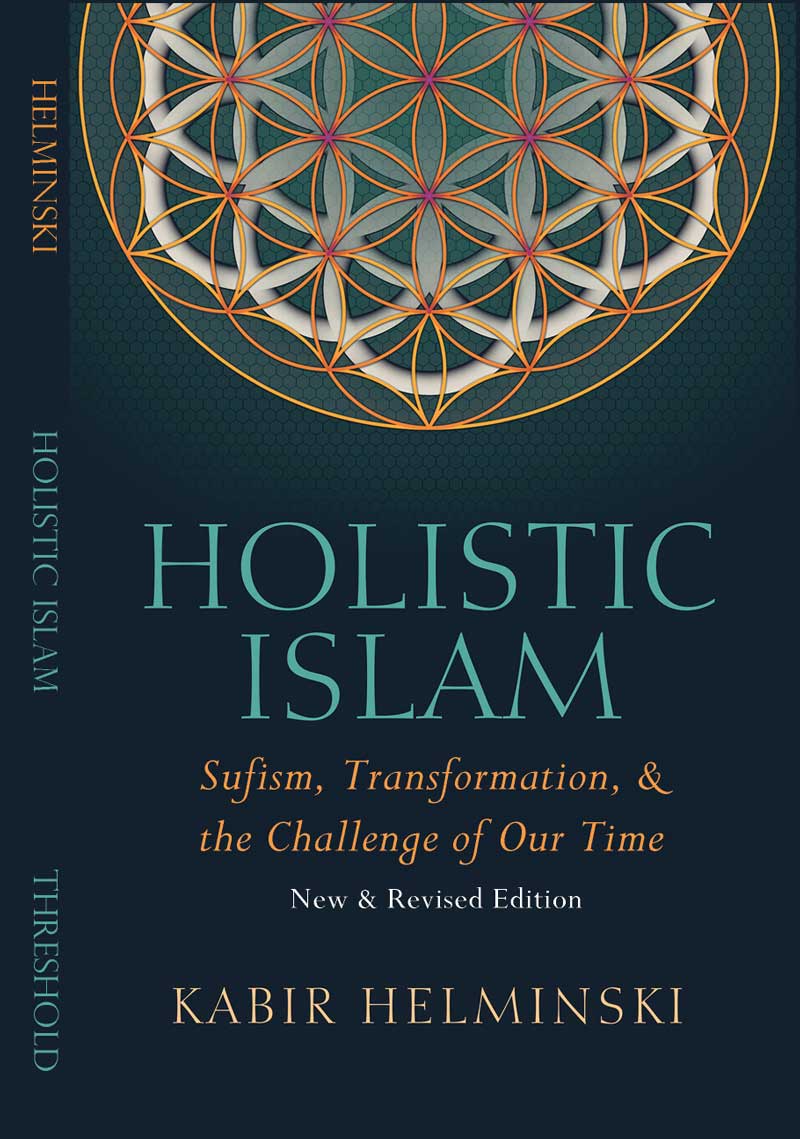 Holistic Islam, Sufism, Transformation, & the Challenge of Our Time:
Holistic Islam, Sufism, Transformation, & the Challenge of Our Time:
New and Revised
We are happy to announce that Holistic Islam, Sufism, Transformation, & the Challenge of Our Time is being re-published by Threshold Books in a New and Revised edition, both in paperback from Amazon and in Kindle format as well. Should be available by the 2nd week of July.
If you buy or recommend this book be sure to obtain the New and Revised edition.
***
Women of Sufism: Spanish eBook
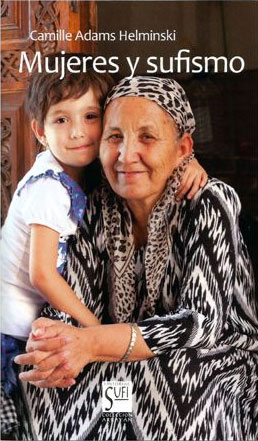 The Spanish edition of Women of Sufism: A Hidden Treasure is now available as an eBook. Translated by María Luz López Tena.
The Spanish edition of Women of Sufism: A Hidden Treasure is now available as an eBook. Translated by María Luz López Tena.
La presencia luminosa de las mujeres que siguen el camino sufí, el camino místico del islam, cobra vida aquí a través de sus canciones y poesía sagradas, sus sueños y visiones, y las historias de su lucha cuando presencian la Verdad en diferentes ámbitos. Estos textos reflejan cómo la cosmovisión sufí honra y respeta lo femenino, y se comparten con el deseo y la confianza de que las mujeres sigan contribuyendo de forma próspera al desarrollo espiritual de la humanidad.
***
The Ecstasy of Recognition, Day of Arafat

This year, the hajj will be very different. Many people who made the intention to make the pilgrimage this year are having to postpone their plans. We look back to these reflections from some years ago by Shaikh Kabir on connecting to the day of Arafat – even if we are not there physically.
***
On the day of Arafat (November 5) some millions of pilgrims gather on Mount Arafat outside Mecca. It is a reminder of the Day of Reckoning—or the Day of Recognition, as we sometimes call it. It is a very cosmic moment. Some of our friends are there on this very day.
Imagine yourself standing with millions of other human beings at Arafat, stripped down to bare essentials, wearing a simple sheet of white cloth, all distinctions of wealth, position, and national identity erased. All you have is the sum of your life’s thoughts, feelings, and deeds, the net result of your relationships, your loves and hates—all these things that have shaped your soul, what you are. The people on Hajj are experiencing that today. We all will experience it one day, on the day of conscious recognition.
We are reminded that true spirituality, true surrender, is about awakening to what is real and true. The Day of Judgment should not be something that we fear, but a reminder of the preciousness of this life on earth as an opportunity to penetrate the veils and come to the deepest reality.
When we come to that deepest reality, we will discover the pure ecstasy of being, the ecstasy of infinite compassion and love, the ecstasy of infinite intelligence and beauty. True spirituality is nothing less than this. It is amazing, even confounding, that some representatives of religion espouse a religion of fear, a religion of difficulties, and in some cases a religion of tyranny. Some people even fear the spiritual path, imagining that it is all about sacrificing what we love, what we enjoy, what is precious to us. But this is only the perspective of the false self that needs the support of false pleasures, attachments, and defenses, and fears losing whatever threatens its imaginary security and comfort.
If we analyze where the false self gets its satisfactions and its illusory sense of security, we will see how shallow and unreal are the things it depends on. The part of ourselves that is primarily focused on appearances, possessions, and entertainments will never be satisfied nor secure.
At the heart of spiritual experience is the ecstasy of being that we only know when we have been faithfully focused on what is most real. The human heart has the capacity to know this, to experience this, and, in fact, we are created and designed to experience the immense dimensions of divine love and beauty. What we have to sacrifice is our trivial distractions and superficial desires—nothing very important or real. We have a right to our humanness, to certain healthy pleasures and satisfactions—as long as we remember that we are servants, as long as we are conscious of our need for our divine Friend, as long as we are grateful for everything.
What is unreal will fall away in the presence of what is Real. The discipline that is required is the discipline of faithfulness to this truth, of being true to our yearning. That is why it is recommended on this day of Arafat, and every day, to frequently say: God is great (Allahu akbar), thanks be to God (alhamdulillah), and glory be to God who is subtle beyond all knowing (subhanallah).
***
HeartSpace Sufi App
Awaken the heart with the wisdom & practice of Sufi spirituality
“This app is filled with gorgeous wird & dhikr. Each one is like a love letter from God directly to my soul. If you find yourself in need of reflection, guidance, or solace, this app will guide you to spiritual healing & regrowth, inshAllah.“
The purpose of HeartSpace is to awaken the consciousness of the heart through the wisdom and practice of Sufi spirituality. It is through the heart that a human being can experience the peace, inner strength and sense of well-being that comes through spiritual practice. True spirituality is based on experience more than beliefs. HeartSpace offers an introduction to traditional principles and practices shared across Sufi lineages. HeartSpace is not meant to replace lived spiritual guidance, but is intended to be an opening or a complement to your spiritual journey. All praise and thanks be to the Sustainer of the Universe.
More details here.
***
The Threshold Society
 The Threshold Society, rooted within the traditions of Sufism and inspired by the life and work of Mevlâna Jalâluddîn Rumi, is a non-profit educational foundation with the purpose of facilitating the experience of Divine Unity, Love, and Truth in the world. Sufism is a living tradition of human transformation through love and higher consciousness. Our fundamental framework is classical Sufism and the Qur’an as it has been understood over the centuries by the great Sufis. The Society is affiliated with the Mevlevi Order, and offers training programs, seminars and retreats around the world.
The Threshold Society, rooted within the traditions of Sufism and inspired by the life and work of Mevlâna Jalâluddîn Rumi, is a non-profit educational foundation with the purpose of facilitating the experience of Divine Unity, Love, and Truth in the world. Sufism is a living tradition of human transformation through love and higher consciousness. Our fundamental framework is classical Sufism and the Qur’an as it has been understood over the centuries by the great Sufis. The Society is affiliated with the Mevlevi Order, and offers training programs, seminars and retreats around the world.
Each month we intend to highlight an article about our lineage and its principles. This month we offer: Suggestions for Practice Within the Threshold Society & The Mevlevi Tradition.
Most people who come to Sufism have preconceptions as well as questions about what Sufism is. What does the practice consist of and how will I learn and develop? Is there a detailed curriculum? Or hidden knowledge? What should I expect of my shaikh and what kind of relationship is possible? Some people might imagine that the shaikh has a detailed, objective technical knowledge of various inner states, spiritual energies, planes of reality, spiritual powers, etc. While there is some truth in this, it has been our experience that among the best teachers these subjects are seldom emphasized or talked about directly. An emphasis on secret, privileged knowledge, or encouraging a mystique or building a cult of personality, or intimations of end-time scenarios, have proven time and time again to be counter-indicators of spirituality. In other words, the more such tendencies surround a teaching, the less likely it is that the teaching will be balanced and authentic. If we look to the Qur’an and the example of the Prophet Muhammad, we see a sane and balanced presentation of the Way. Our approach, therefore, places a strong emphasis on developing our capacities for presence, remembrance, service, and humility.
***
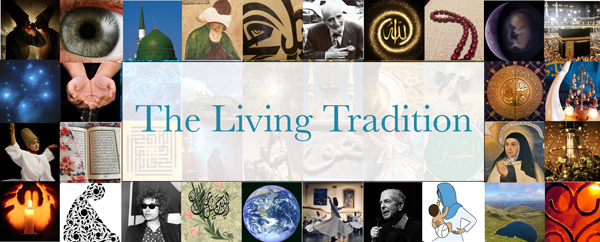
Threshold’s collaborative blog channel The Living Tradition on Patheos.com is reaching new audiences and sharing the experiences of our community in a unique and vibrant way.
Let us know what you think by commenting on the posts — join the discussion at www.patheos.com/blogs/livingtradition and “follow” The Living Tradition.
Recent articles:
Stepping Up To Spiritual Activism by Saimma Dyer
***
Recent Publications


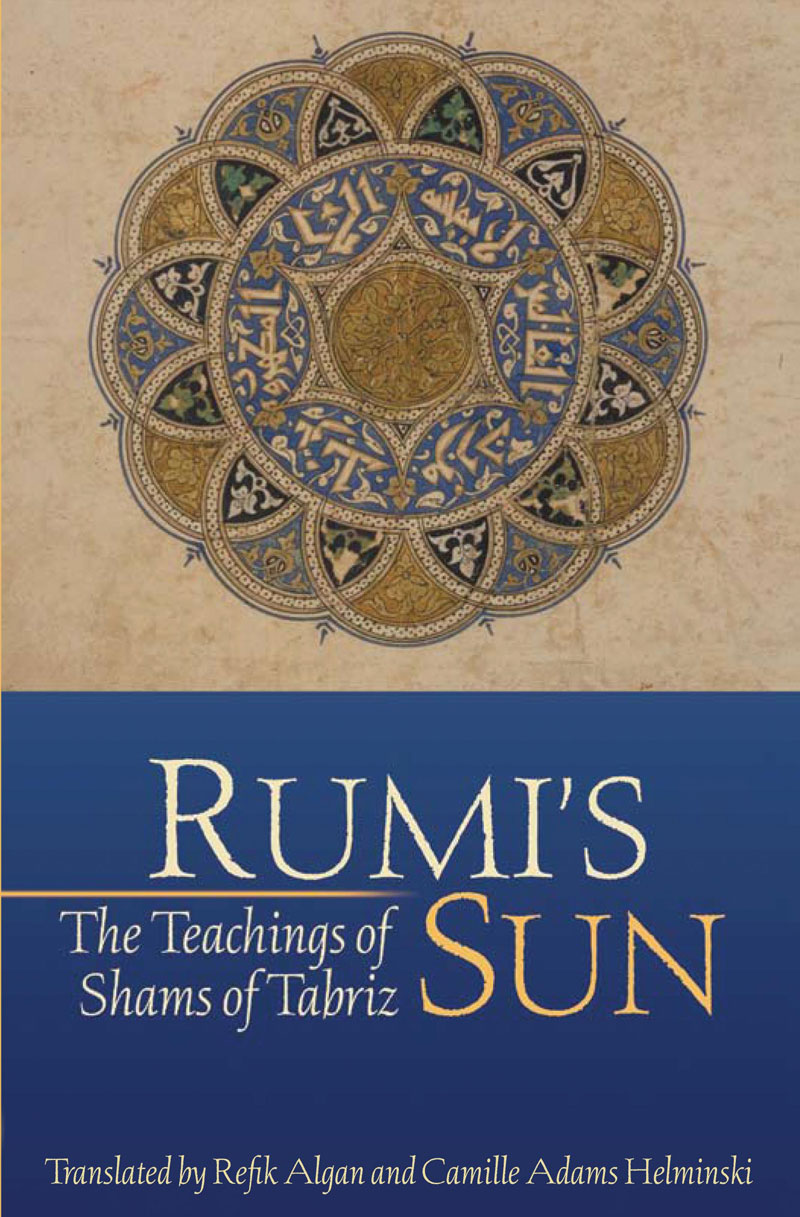
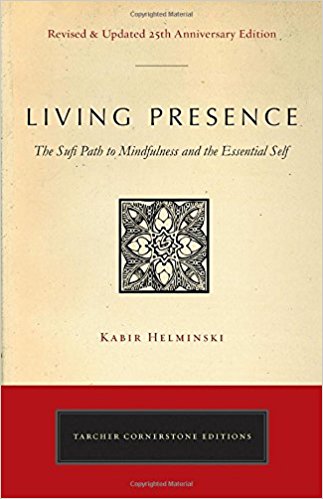
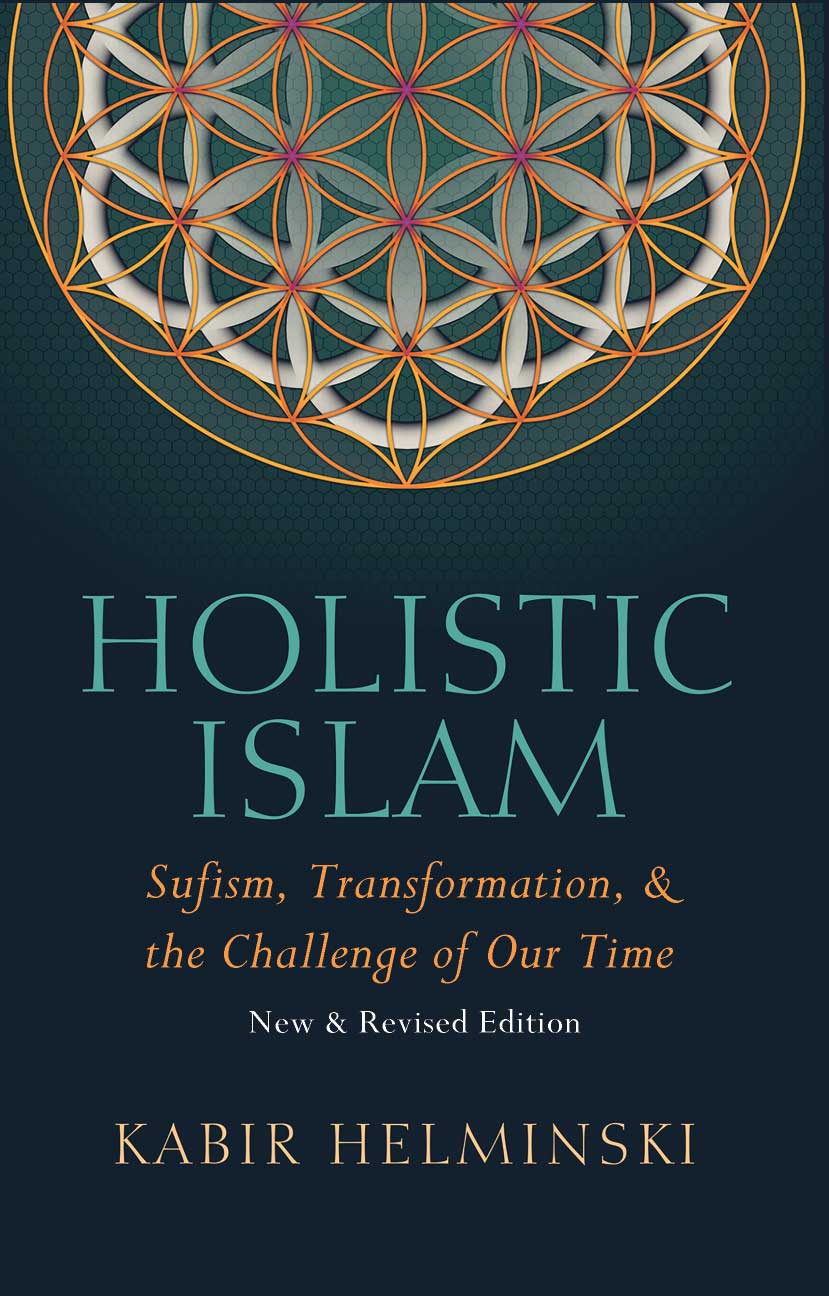
We encourage you to leave reviews on Amazon.
And remember you can donate to Threshold Society through Amazon Smile.
For AmazonSmile US: smile.amazon.com
For AmazonSmile UK: smile.amazon.co.uk
We appreciate your support.
***
Calendar
1st & 3rd Sunday of every month Online Meditations: more details
Jul 31: Eid al-Adha
Events with Kabir (K) & Camille (C)
***
We’d love to hear from you – get in touch at eyeoftheheart@sufism.org
***
Find out how to support the work of Threshold Society.
***
Receive this newsletter by email: sign-up here.

